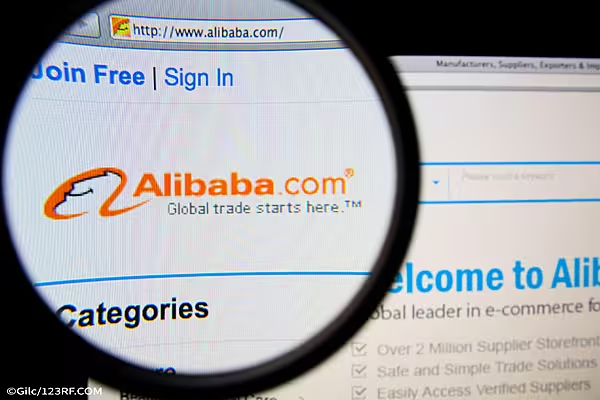Alibaba stock lost more than 4% in Hong Kong on Monday after ex-group CEO Daniel Zhang quit its cloud computing unit in a surprise decision that unsettled investors and raised concerns over how it may impact the subsidiary's spinoff plans.
Just two months since Zhang chose to relinquish other roles to focus on the cloud, new group CEO Eddie Wu will become acting CEO and chairman of a unit grappling with weak sales growth ahead of a planned initial public offering (IPO) next year.
The Cloud Intelligence Group is Alibaba's second-biggest revenue source after domestic e-commerce and houses the group's generative artificial intelligence model Tongyi Qianwen and messaging app Dingtalk.
The unit's revenue fell for the first time in January-March, by 2%, due to delayed projects and other factors. Still, analysts estimate it is China's largest cloud provider with a 34% market share.
Cloud Computing Unit
With an estimated value of $41 billion (€38.2 billion) to $60 billion (€55.9 billion), the cloud computing unit is heading for a bumper IPO. However the reams of data it oversees could put it in regulatory crosshairs as data security and geopolitical concerns grow, analysts said.
The company said it will continue its plan to spin off the cloud unit under a yet-to-be-appointed management team. Earlier this year, it said it would complete the process by May 2024.
Citi analyst Alicia Yap said in a client note that Zhang's departure could weigh on Alibaba's share price in the near term until a successor is named.
"Investors may be concerned that the timing and process of AliCloud's spin-off may be affected."
Daniel Zhang
Zhang, who succeeded co-founder Jack Ma as group CEO in 2015 and chairman in 2019, took charge of the cloud unit in December after an outage it described as its "longest major-scale failure" in over a decade.
But his time as group head was characterised more by two years of intense regulatory scrutiny.
His exit will allow the cloud business to start from a "clean slate", said Vey-Sern Ling, managing director at Union Bancaire Privee, who viewed the development as positive.
Alibaba's share price fell as much as 4.4% to HK$86.85, its lowest since Aug. 23. Still, Ling said the stock is also susceptible to macro and geopolitical pressure.
Wu Takes Over
Alibaba announced Zhang's decision to depart the cloud unit in a letter to staff seen by Reuters on Sunday, without specifying reasons, and said he would be setting up a technology fund. The same day Zhang was scheduled to hand the group CEO role to Wu and chairmanship to co-founder Joseph Tsai.
Wu is one of Alibaba's 18 co-founders, starting out as technology director in 1999. He is now group CEO, chairman of Taobao and Tmall Group, a director of its Local Service Group, and a director of Alibaba International Digital Commerce Group, Citi's Yap said.
"Alibaba Cloud has lost some ground with government and state-owned enterprise clients, which were previously a stronghold for the company," said Li Chengdong, head of Beijing-based think tank Haitun, who views Zhang's departure as likely a personal decision.
"During his leadership tenure, Alibaba Cloud's business did not improve significantly despite his efforts. Zhang likely realised that the challenges facing Alibaba Cloud's lacklustre growth were beyond what he could influence or control as an individual executive."
Wu's appointment is good for Alibaba, said Union Bancaire's Ling.
"Eddie Wu, being part of the original group of founders and closely aligned to Jack Ma, should bring fresh energy to the business," he said.














